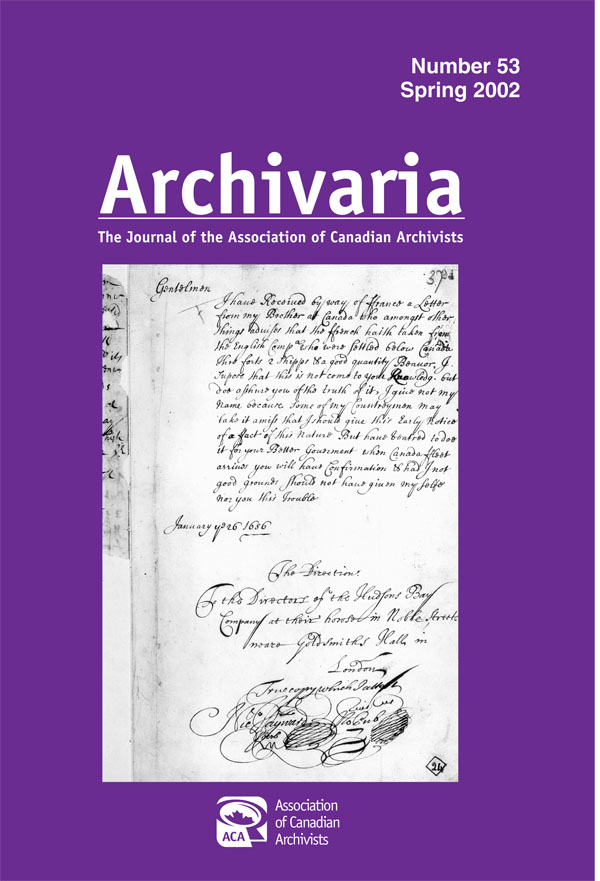Establishing Recognition of Past Injustices: Uses of Archival Records in Documenting the Experience of Japanese Canadians During the Second World War
Abstract
The National Archives of Canada holds an extensive group of archival government records that document the uprooting of the Japanese Canadian community during the Second World War and its aftermath. This article explores the use of the archival records that caused the community to question the fairness of their treatment, to seek an apology from the government, and request compensation for their losses. Usage of the archival record in subsequent publications also helped to build cultural memory. The existence of such archival documents is essential for citizens to hold democratic government accountable for its policies, decisions, and actions. The example of the Japanese Canadians' efforts to seek recognition of, and restitution for, past injustices illuminates the important role played by a national archives in protecting the rights of citizens through its appraisal and transfer decisions.
Authors of manuscripts accepted for publication retain copyright in their work. They are required to sign the Agreement on Authors' Rights and Responsibilities that permits Archivaria to publish and disseminate the work in print and electronically. In the same agreement, authors are required to confirm that "the material submitted for publication in Archivaria, both in its paper and electronic versions, including reproductions of other works (e.g. photographs, maps, etc.) does not infringe upon any existing copyright." Authors of manuscripts accepted for publication retain copyright in their work and are able to publish their articles in institutional repositories or elsewhere as long as the piece is posted after its original appearance on archivaria.ca. Any reproduction within one year following the date of this agreement requires the permission of the General Editor.





